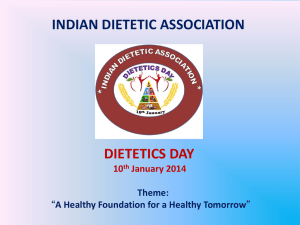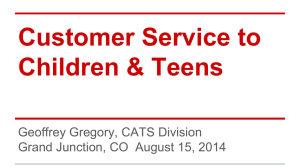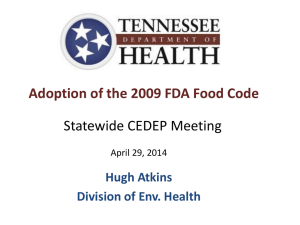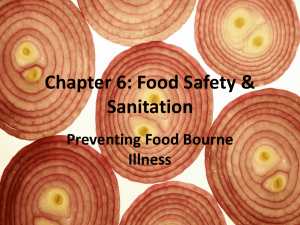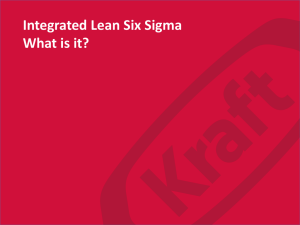PEW KITS Study - School Nutrition Association
advertisement
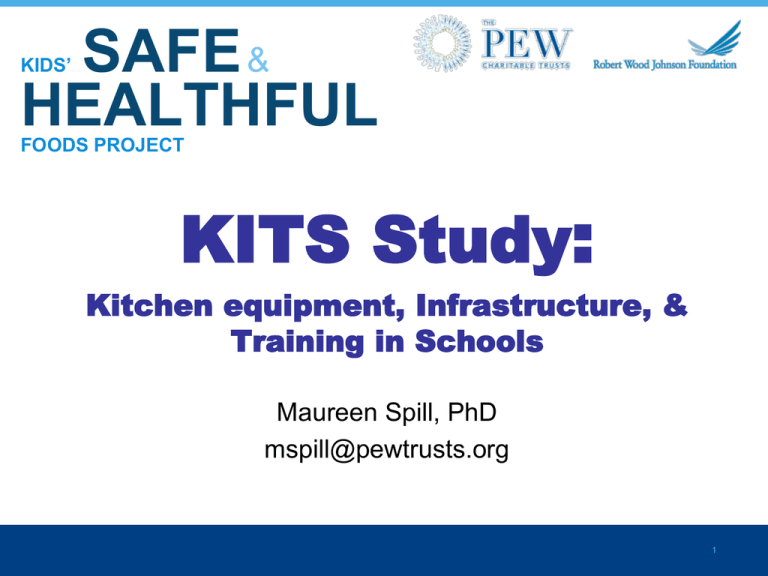
SAFE & HEALTHFUL KIDS’ FOODS PROJECT KITS Study: Kitchen equipment, Infrastructure, & Training in Schools Maureen Spill, PhD mspill@pewtrusts.org 1 SAFE & HEALTHFUL KIDS’ FOODS PROJECT The Pew Charitable Trusts and the Robert Wood Johnson Foundation are working together on the Kids’ Safe and Healthful Foods Project to provide nonpartisan analysis and evidencebased recommendations to help ensure that: • The U.S. Department of Agriculture (USDA) adopts sciencebased nutrition standards for all foods and beverages served and sold in schools; • USDA develops and implements rigorous school food safety policies; and • Schools have the resources they need to replace outdated and broken kitchen equipment and train cafeteria employees. 2 SAFE & HEALTHFUL KIDS’ FOODS PROJECT School kitchen equipment: What’s the big deal? • 2009: $100 million in ARRA funding was made available for equipment purchases • 2010: An additional $25 million in appropriations – • Together, more than $630 million in requests Fall 2012: new meal regulations took effect calling for more fruits and vegetables, low-fat dairy, whole grains, etc. – To implement these standards, many schools need additional storage, refrigeration, ovens instead of deep fryers, etc. 3 SAFE & HEALTHFUL KIDS’ FOODS PROJECT What is the KSHF team doing about it? 1.) KITS Study: Assess and quantify the need for school kitchen equipment and infrastructure upgrades, and training needs 2.) School Food Modernization Act: Bill to establish equipment and infrastructure loan assistance/grant program & strengthen training and technical assistance 3.) Innovative School Foodservice Financing Strategies: Identify creative approaches for school kitchen equipment and infrastructure funding 4 SAFE & HEALTHFUL KIDS’ FOODS PROJECT KITS Study • First-ever nationally representative, quantitative study assessing school kitchen equipment needs • Data is representative at both the national and state level for all 50 states and District of Columbia • Web-based survey given to school food authorities (district level) 5 SAFE & HEALTHFUL KIDS’ FOODS PROJECT KITS Study Methodology Questionnaire development (March – August 2012) • – – Expert panel Pilot questionnaire Survey in field (August – November 2012) • – Over 3,300 SFAs completed the survey (thank you!) • Analysis (December 2012 – March 2013) • Report (Summer 2013) – – National report State profiles 6 SAFE & HEALTHFUL KIDS’ FOODS PROJECT Preliminary findings • Good news: many SFAs anticipated changes and were expecting to have implemented the new meal patterns by end of 2012-13 school year • Several barriers to meeting standards, but many have ‘workarounds’ in place • • Increased fruits and vegetables present new equipment needs – Receiving and storage (hand trucks/fork lifts, pallet jacks, scales, dry storage shelving, walk-in refrigerators and freezers) – Lunch service area (serving counters, cold food merchandizers, trays, steam tables, serving portion utensils) Infrastructure challenges: space, electrical, plumbing, ventilation, meeting code 7 SAFE & HEALTHFUL KIDS’ FOODS PROJECT School Food Modernization Act – Introduced in last Congress by Representatives Tom Latham (R-IA) and Mike McIntyre (D-NC) – • Establishes loan assistance & grant program • Strengthens training and technical assistance Broad support from coalition partners 8 SAFE & HEALTHFUL KIDS’ FOODS PROJECT Innovative School Foodservice Financing Strategies – Currently collecting insight into school foodservice equipment and infrastructure financing successes at the state and local level – Plan to hold a national convening to discuss innovative approaches to meeting the needs identified by the KITS study. – Publish a report highlighting strategies that can be used by school food service directors and school administrators to address equipment and infrastructure funding needs. – Engage the private sector in working with schools to address equipment and infrastructure needs. 9 SAFE & HEALTHFUL KIDS’ FOODS PROJECT For more information: www.healthyschoolfoodsnow.org Maureen Spill mspill@pewtrusts.org (202) 540 - 6705 10


